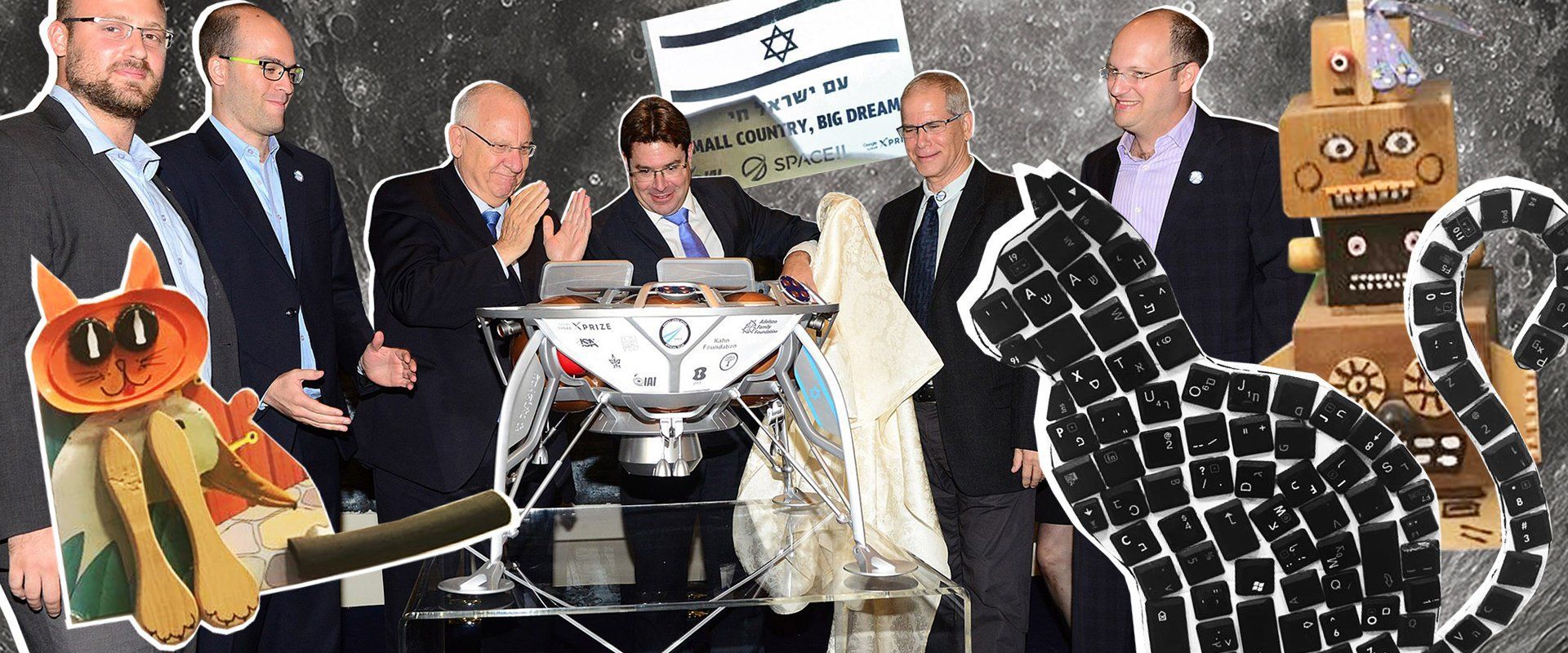
People often say that there is something particularly Israeli about the concept of ‘doing it yourself.’ And that makes sense. After all, ever since the days of the early pioneers and kibbutzniks, it has been a delicate mix of confidence, chutzpah and hubris that has made Israel into a ‘start-up nation.’ But going to the moon? Even for a nation of dreamers, that seemed like a giant leap. Not so, however, for a dedicated group of techy millennials who set out to win Google’s Lunar XPrize and put a blue-and-white flag on the moon.
Mishy returns to a place he loved as a kid: the Israel Museum’s recycling workshop. There he meets Telma Schultz, who – for the past thirty years – has taught generations of Israeli children how to dream with repurposed objects and appreciate the beauty of things we typically toss away.
Back in September 2007, Google announced a once-in-a-lifetime challenge: the Lunar XPrize. In what was often called ‘Moon 2.0,’ Google and the XPrize Foundation offered $20 million to the first privately funded group to successfully land an unmanned rover on the moon, have it travel 500 meters on the lunar surface and transmit images and videos back to Earth. It had been three-and-a-half decades since humans last walked on the lunar surface, and the organizers of the contest hoped it would spark the development of innovative and cost-effective technologies and inspire a new wave of investment in space exploration. By December 31, 2010, the last day to enter this new ‘race to the moon,’ 31 teams from around the world had signed up. But just hours before the submission deadline, one more team – led by three inexperienced Israelis – would throw its hat in the ring. Judah Kauffman tells their story, which is narrated by Adina Karpuj.
Zev Levi scored and sound-designed the episode with music from Blue Dot Sessions. Sela Waisblum created the mix, and Joel Shupack edited the SpaceIL story. Thanks to Naor Meninger and Eytan Weinstein from “Two Nice Jewish Boys” for allowing us to use clips of their interview with Yariv Bash. Thanks also to Ahiad Ovadia and Ronna Cohen-Morad of the Israel Museum in Jerusalem, and to Harry Sultan, Estie Rosen, Ido Anteby, Yigal Harel, Wayne Hoffman, Esther Werdiger, Sheila Lambert, Erica Frederick, Jeff Feig and Joy Levitt.
The end song, Chalaliyot (“Spaceships”) was written by Rami Fortis and composed and performed by Berry Sakharof.